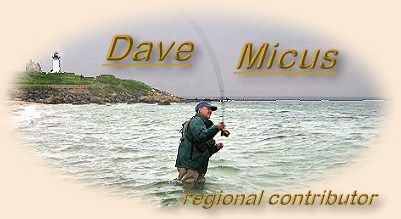|
Hemingway once compared elephant hunting with
a small caliber firearm to burning the taste buds
off of your tongue when, after a hard night's
drinking, you mistakenly gulp the lye product
Eau de Javel instead of bottled water. Such
extremes, was Papa's point, will leave you unable
to savor anything less heady. I am hoping he is
mistaken, as I've recently fried my taste buds
fishing for sharks in Vineyard Sound with Josko
Catipovic.
Josko is an MIT-Woods Hole Oceanographic Institute
Ph.D. who works as a scientist for the U.S. Navy.
His "job" actually involves fishing for tuna and
sharks. He's a marlin and tuna-tagging disciple
of the famous Frank Carey, with whom he tagged blue
marlin off of Kona and giant squid off the Azores
and he is often required to spend significant time
in Andros, the bone fishing capital of the world.
He goes there during the winter, of course. Josko
was once awarded a grant to fish for tuna in Hawaii,
and it says much of the man that we like him in spite
of all of this.
 The lye in this case was Makos, fierce ocean predators
that average 6 to 12 feet in length, weigh between 300
and 1600 lbs and can swim up to 60 miles per hour. The
world record Mako weighed in at 1,115, the only bigger
sharks caught being the Great White (2,664), the Tiger
(1,780), and the Greenland (1,708). But though these
sharks might be bigger, I doubt they put up the fight
that the Mako does. When hooked, the Mako doesn't
know whether to fight you in the water or in the air,
so they do both, bursting from the water like a S.A.M.
missile launched from a Trident class nuclear submarine.
The lye in this case was Makos, fierce ocean predators
that average 6 to 12 feet in length, weigh between 300
and 1600 lbs and can swim up to 60 miles per hour. The
world record Mako weighed in at 1,115, the only bigger
sharks caught being the Great White (2,664), the Tiger
(1,780), and the Greenland (1,708). But though these
sharks might be bigger, I doubt they put up the fight
that the Mako does. When hooked, the Mako doesn't
know whether to fight you in the water or in the air,
so they do both, bursting from the water like a S.A.M.
missile launched from a Trident class nuclear submarine.
Before I go on I should explain just how I came to
be in the blue water fishing for sharks with someone
I had just met that very morning. Josko and I haunt
the same fly-fishing bulletin boards, and he was kind
enough to invite Jed Proujansky another on-line fly
guy, and me on a fly-fishing for tuna trip. I readily
accepted, excited about the prospect of taking tuna
on the fly and also happy to be arranging a rendezvous
via the web without giving my credit card number to a
girl named Lola. We were to meet Monday night to fish
the next day. As an afterthought, Josko mentioned that
he needed to catch a blue shark for a research project
he was involved in, and invited me along if I could be
there early Monday morning. "LetmethinkaboutitI'llbethere,"
I responded.
We launched from Woods Hole about 10 am. Along with
Josko and myself, there was a student from the Boston
University Marine Program, as catching sharks is a
three-person job. We arrived at the hunting grounds
after motoring 40 miles off shore in Josko's 26-foot
open cockpit fishing boat, but calling this a fishing
boat is to call a Duesenberg a car. This is a machine
made for fishing the open ocean; 385 Volvo inboard
that purred at 34 knots, navigational systems that
let us pin point a shoal in the middle of the ocean,
and fish finding sonar that showed a herring as plain
as a 6 foot blue shark. I'm not at liberty to divulge
exactly where we fished, not because I'm sworn to
secrecy but because, from 15 miles offshore onward,
the ocean is quite featureless and I hadn't the
faintest idea where we were. I'm sure we were still
in the Atlantic, though. Josko knows a thousand
square miles of Vineyard Sound like a pond in his
back yard, and after a 90-minute ride he was
satisfied that we were where we needed to be.
You fish for sharks much like they fished for Jaws.
Josko lowered a bucket of ground herring over the
side to create a scent trail, and began throwing
large chunks of tuna guts overboard. He then
rigged the rods, stout, 5'6" ft. sticks with
huge Penn International big game reels loaded
with 60 lb test, wire leaders nearly as thick
as your little finger, and 10/0 hooks. We
weren't, after all, fishing for brook trout.
And then you wait.
It didn't take long for the first shark to appear.
We were all lulled into a trance by the gentle
ocean swells, when one of the reels started to
click, slowly at first, then a bit faster, then
buzzing like a small electric motor. Sean, the
B.U. student, was first up, and he strapped on
the fighting harness, took the rod, and began
fighting the shark. This was, incredibly, only
the second time Sean had been fishing, his
previous trip occurring the week before when
Josko took him out and put him onto a school of
36 inch plus striped bass. Now he was fast onto
a shark that, when it began leaping off of the
stern, revealed itself as a six-foot Mako, and
I can't help but think that poor Sean's taste
buds have been singed for life. These fish aren't
easy to land, and after a noble struggle the Mako
broke the 200 lb piano wire leader and was off.
My heart was pounding out a salsa tune in my
chest; I can't imagine how Sean must have felt.
Josko calmly replaced the hook and bait, and we
again sat back and waited.
But not for long.
A fin appeared behind one of the baits, and I swear
I could hear the Jaws music emanating from some
unseen speaker. I know Josko heard it too, though
he denies it. The shark slashed at the bait and
took off, the reel once again buzzing like a
carpenter's drill. This time it was my turn. I
put on the harness and took the rod and felt the
biggest fish I had ever felt in my life doing
everything it could to end our relationship.
After a 20-minute struggle that almost snapped
my forearm, I brought a six-foot blue shark to
the boat. And now the drill began.
Once the shark is at the boat the rod man has to
do his best to keep it there. The leader man puts
on gloves and grabs the leader, pulling the shark
up hand over hand but being extra careful not to
let the line wind around any part of his body.
If it does and the shark, in a last burst of flight
or fight energy, plummets to the bottom, the leader
man has no choice but to follow, and there's been
more than one incident of the leader man
disappearing forever in the ocean's depths when
a hooked shark frantically dives for its life.
The gaffer gaffs the shark in the gills and swings
it on board. Unfortunately, or fortunately, my
shark straightened the hook and so lived to fight
another day.
In only a matter of minutes there was another
shark on. Sean grabbed the rod and began doing
battle, while Josko called for me to reel in the
other line so that it would not get tangled with
the shark. As I was reeling in it happened, the
unexpected that always keeps fishing from ever
being even remotely boring, whether fishing for
blue gills or marlin. I nearly had the bait in
when something snatched it and began a long run
perpendicular to the boat.
Sean was still fighting his fish; Josko yelled
for me to just play the fish until he could help.
I didn't have the harness on and, with no leverage,
could feel the raw power of a brute. I worked to
the front of the boat when, thirty feet off of
the bow, a huge, beautiful Mako shot out of the
water a good 15 feet into the air. It reentered
the water and, from the corner of my eye, I
spotted another shark, just as big, rocketing
from the water on the other side of the boat.
"Josko!" I yelled, "There's two of them jumping!!!"
"It's the same shark," he yelled back. "They're that fast."
The shark looked to me to be at least 16 feet long.
Josko says it was closer to eight so we'll split
the difference and say 12. He ran, then charged
the boat, ran again, then charged the boat. At
least three times I thought I'd lost him when
Josko told me to reel like hell and, sure enough,
he was still on the line, charging the boat.
Josko and Sean, in the meantime, had landed
Sean's shark, a six-foot blue that they slid
into the live well for the trip back to Woods
Hole. I continued fighting the Mako.
After what seemed like two hours but was probably
20 minutes, the line went slack. He was gone and
I knew it. I reeled in, but without that usual
dejection from losing a big fish. Maybe because
I at least got to see him when he jumped. Or
maybe, having seen him, I didn't want him in
the boat. No matter. Josko took the end of
the line and showed me what happened; the Mako
had straightened out the swivel to which the
leader was attached. "That swivel is rated at
600 lbs," he said, meaning it would take at least
600 pounds of pressure to bend the metal.
The ride back to Woods Hole was invigorating,
the brisk air a welcome contrast to the heat
generated by the brawl and still trapped beneath
my gortex shell. Soon I cooled down, the weakness
in my knees dissipated, and all that was left was
a vivid memory that seemed as if it was just a
wonderful hallucination. We'd drop the blue shark
off at the lab, then it was on to Josko's to hook
up with Jed and eat a splendid meal of fresh tuna
(Josko had boated six the day before). A wonderful
day matured into an even better night of good food,
good drink, and great company.
Best of all, tomorrow we'd go fishing again. ~ Dave
About Dave:
 Dave Micus lives in Ipswich, Massachusetts. He is an
avid striped bass fly fisherman, writer and instructor.
He writes a fly fishing column for the Port City Planet
newspaper of Newburyport, MA (home of Plum Island and Joppa Flats)
and teaches a fly fishing course at Boston University.
Dave Micus lives in Ipswich, Massachusetts. He is an
avid striped bass fly fisherman, writer and instructor.
He writes a fly fishing column for the Port City Planet
newspaper of Newburyport, MA (home of Plum Island and Joppa Flats)
and teaches a fly fishing course at Boston University.
|



